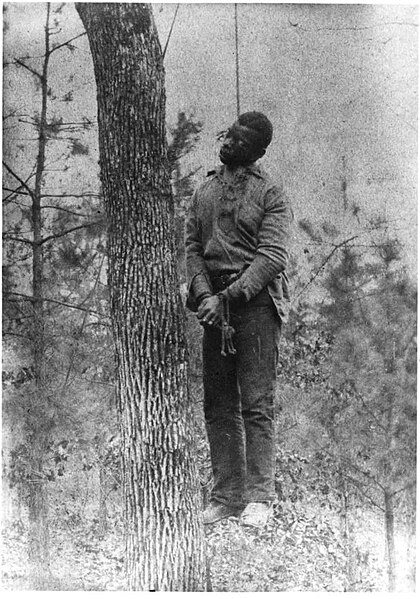Monday, May 16th, 2011

I’ve chosen to do these reviews together since Loretta Devine and a similar message, carried both films.
Average Grade: C-/C+
Comments
- These movies were average. I’ve seen better films with Black actors in them. I’ve seen better films by Black film makers. I know we can do better.
- Why was Loretta Devine, a Houston, Texas native cast as a mother from Brooklyn in Jumping the Broom? Someone should have caught that. And if she and all her relatives moved to Brooklyn from somewhere else, that should have been made clear.
- I absolutely adored the Teyanna Taylor, who played Sabrina in Madea’s Big Happy Family. I especially loved the way she chewed her gum and yelled “Byrrrraaaaaaaaaaaannnn.” Fantastic. Thank god for her and the other nuggets of disconnected Madea-comedy, because there was so much melodrama in this film, you needed something to remind you that life isn’t always this deep. I mean, this drama was so thick you couldn’t even get a big tooth comb through it.
- Both movies were way too long. I could have easily shaved off 20 minutes from each. You don’t need 10 comic relief scenes. The best comedy is woven in throughout the telling of the story.
Commentary
The messages for both Madea’s Big Happy Family and Jumping the Broom are fairly straightforward: family secrets are not good for anyone. If you’re caring for your sister, aunt, daughter, or niece’s child as your own, please tell the kid. The kid will be fine. It’s much better than having a family secret that could throw the kid into a temporary abyss of not knowing who “they really are”. Women who only have material requirements for the men they get with will likely be unsuccessful with finding a man who will take care of them. No one is asking you to lower your standards… just make the standards high in areas like “honesty,” “maturity,” “thoughtfulness,” “intelligence,” you know, things other than “has a Black card,” “has a 7 figure salary”, cause then you’ll be looking for some who actually exists. And if you don’t, as was the case of Renee (played by Lauren London), you’ll end up with a cold lump of ice in your chest instead of a beating heart. Third, men know better and women usually just need a strong man to put them in their place (yeah….). Lastly, “What god put together, let no man put asunder.” Divorce is for losers, and marriage is between a man and a woman as T.D. Jakes reminds us in this Jumping the Broom almost imperceptibly in his discussion about Bible readings with the soon to be married couple (right…).
Why the C-/C+
These particular film makers haven’t really conceived of new types of stories, or different messages to offer their audiences. You can look through any of Tyler Perry or T.D. Jakes films and find similar messages woven throughout. I’m not saying that either story was necessarily bad, or that I disagreed with every aspect, I just think they’re derivative, recycled, surface, and I know we have better stories to tell than of incest, angry women, paternity tests, family secrets, and marriage. And if we want to tell those same stories: fine. But we don’t have to use the same troupe of 1-D characters to tell these stories, and we can complicate them so much. Add thoughtful and compelling layers. We can do better.
Feminist Critique: Marriage and Love in Black Evangelical Christian Film
Marriage is fantastic for people who want to be in committed relationships with one person for as long as possible, but there’s little commentary on the fact that gays and lesbians aren’t allowed to do so freely. And the gay/sissy man jokes in these films only exacerbate that very thinking. In a world that condones the rape and murder of gay, lesbian, and transgender individuals by those claiming to be religious, which one of these mega church pastors or evangelical media moguls will stand up and say it’s wrong to discriminate, wrong to tell people what they can and can’t do with their bodies?
The tradition of jumping the broom in African American families comes from a tradition passed down by our enslaved ancestors in America who weren’t allowed to legally marry. Instead of signing papers and pronouncing the marriage in a civil ceremony recognized by the law, they literally jumped over a household broom to signify their union. Because they weren’t white, they were not considered human. Therefore, they weren’t moral and rational human beings who could make decisions about their heart and had no legal ownership over their bodies, thus had no right to marry. That sounds all too familiar to the language used to argue why gays and lesbians can’t marry in the U.S. They aren’t heterosexual, therefore they are not normal human beings. Their abnormality makes them amoral, and thus, they have no right to marry.
But love is much bigger than marriage. It has been around far longer as well. Love is a feeling deep in your bones. It is so densely woven into the fabric of your being that you can’t cut it out if you tried. If you have it and if you nurture it, it will grow bigger everyday until you can’t move without feeling it in you. There is only one type of it. It’s the kind that parents have for their children. Love is what children have for their parents even after they realize that their parents are only human, and make mistakes too but did the best they could to raise them, and they are thankful and full of love just for that. It’s the kind that those couples who’ve been together, loving one another for 50 years have. The kind that a 5 year old has for their best friend. The kind that people have for their dogs; the kind that makes them write blank checks to the vets when their dogs get sick. It’s the kind that spouses should have for one another prior to getting married. That’s what love is.
(Love doesn’t kick you underneath the table when you’re saying something he doesn’t like. That’s abuse. And I hope that folks raised a red flag when they saw that in Jumping the Broom. I think it was an epic failure of the producers, writers, and directors. Anyone who has witnessed, been the victim/survivor of, or studied domestic violence know that that type of behavior is a precursor to a woman having her teeth knocked in. Detective Olivia Benson from Law and Order: SVU would not approve.)
In conclusion, either of these movies are best seen via Netflix, Redbox, or HBO. No need to spend $12 to see these movies in theaters if you haven’t yet. They aren’t life altering. They were good enough, and I think that if we want to see our favorite Blackactresses and Blacktors carrying amazing films by Black film makers, then we’re going to have to demand better quality.
Otherwise we’ll continue to get movies where the actors are good, the scripts are a mess, and the stories are the same.












